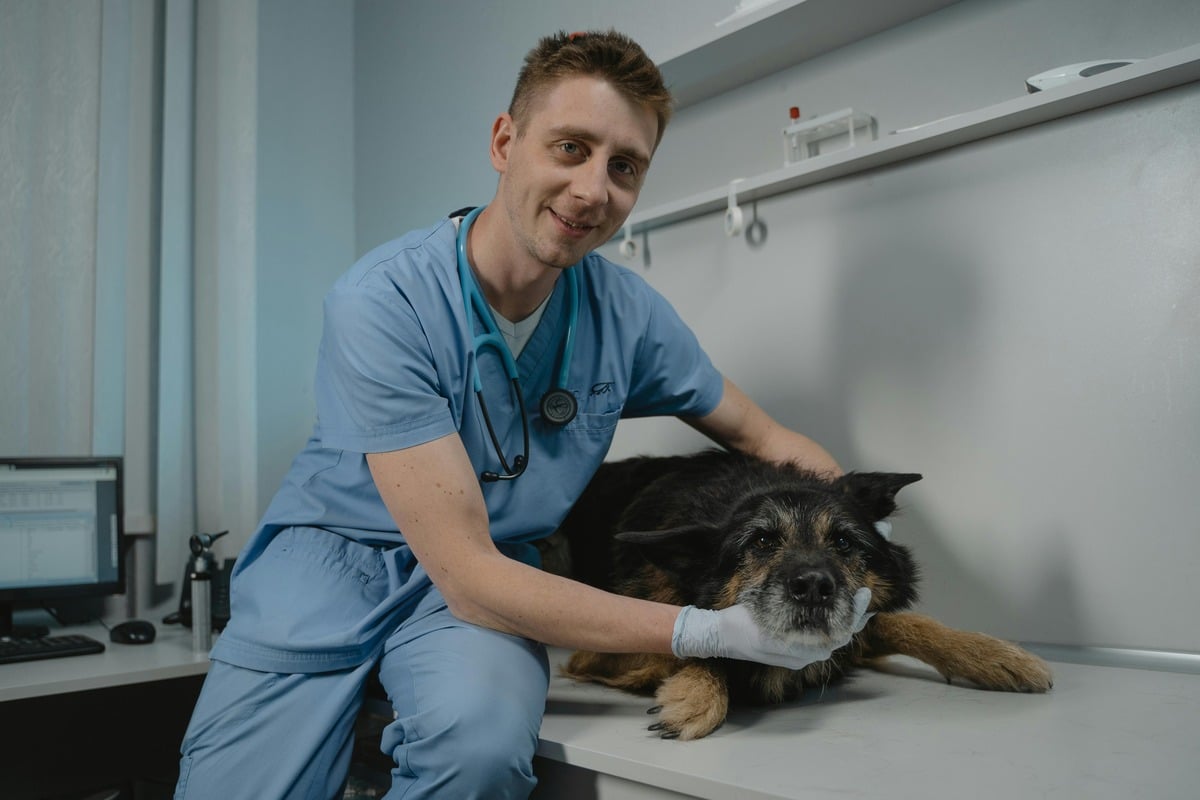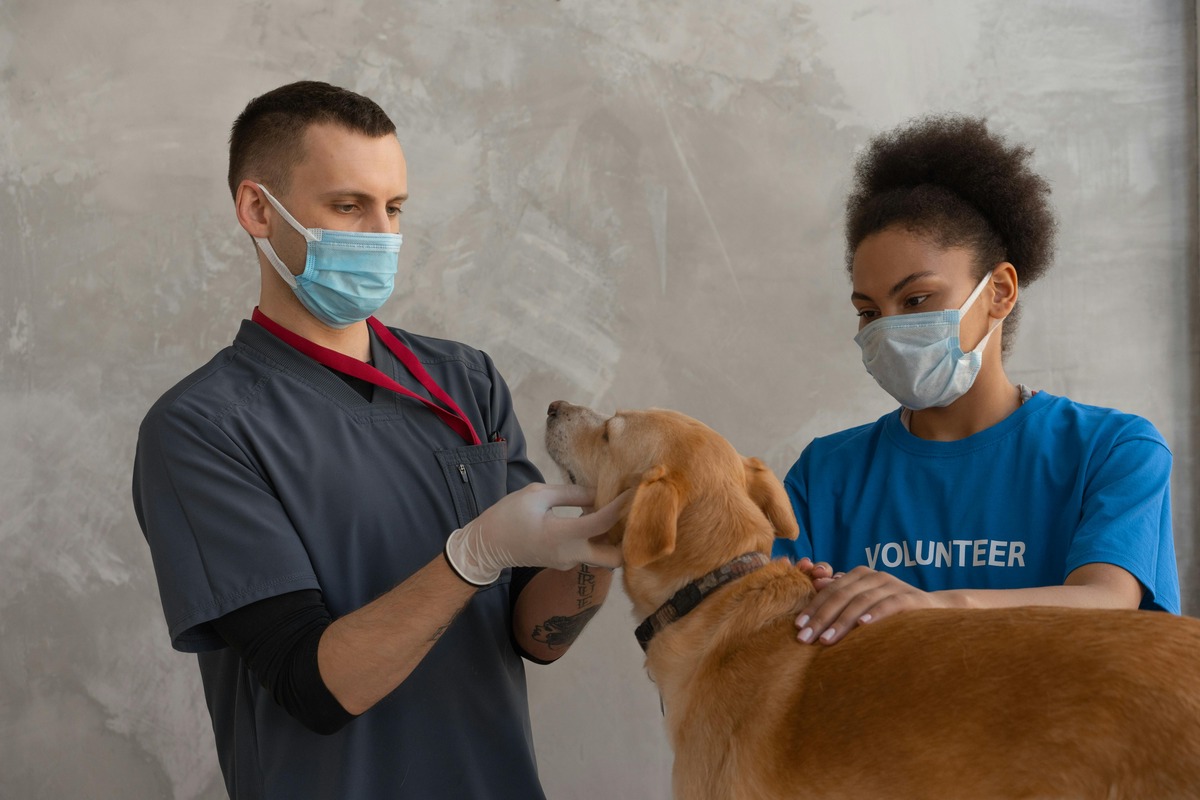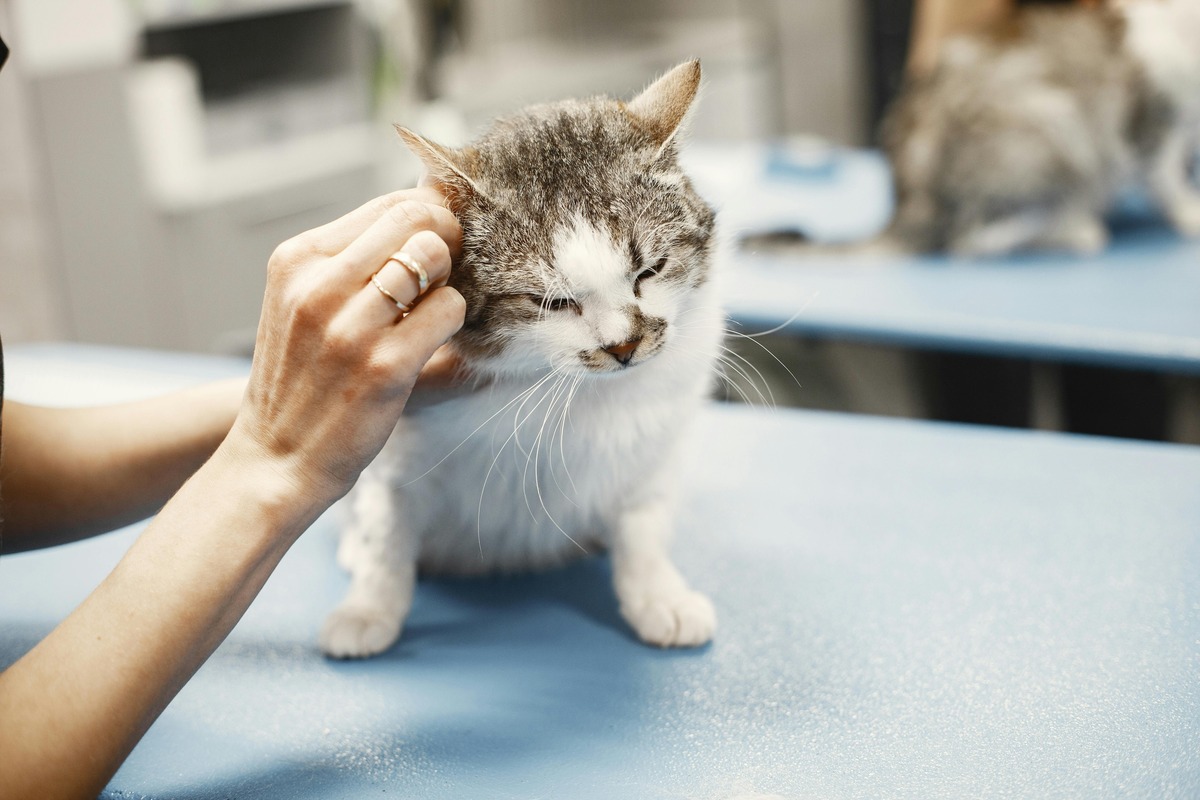
The Importance of Annual Vet Checkups
Daily care is not enough to keep your pet healthy and happy long term, it requires regular visits to the vet. Annual vet checkups are key for your pet’s preventive care. They help catch diseases early and ensure the best health plan tailored to your pet’s needs. Regular checkups give pet owners a chance to talk with a vet. They can discuss any concerns, update vaccinations, and get personalised health tips.
This comprehensive guide tells you the importance of regular pet checkups, the best pet schedule for pets, what to expect during these visits, and how to prepare for a vet appointment. This way, the experience will be stress-free for both you and your pet.
Why Annual Vet Checkups Are Essential
Just like humans, pets require consistent medical evaluations to monitor their well-being. Regular vet visits help detect potential health issues before they become serious and costly. Here are key reasons why annual checkups should never be skipped:
1. Early Detection of Health Issues
- Some diseases, like cancer, diabetes, kidney problems, and heart issues, often don’t show early symptoms.
- Regular blood tests, urinalysis, and physical exams help find problems early. This means treatment can be more successful.
- Pets, like cats, often hide pain or sickness. This makes it important to get professional evaluations to find any hidden health issues.
2. Preventative Pet Care Saves Money and Lives
- Vaccinations, parasite control, and regular screenings can stop serious health issues. They also save you money on expensive treatments later.
- Preventative treatments, such as flea and tick preventatives, are much cheaper. Emergency care or advanced disease treatments are more expensive.
- Early intervention reduces the need for expensive surgeries or long-term medication.
3. Monitoring Weight and Nutrition
- Obesity is a leading cause of health problems in pets, including arthritis, diabetes, and heart disease.
- Your vet will provide dietary recommendations based on age, breed, and activity level.
- Weighing pets regularly helps them stay healthy. It lowers the chance of joint and mobility problems.
4. Dental Health Assessment
- Dental disease affects most pets by the age of three and can lead to infections, tooth loss, and even organ damage.
- Professional cleanings and at-home dental care recommendations are provided during checkups.
- Untreated periodontal disease can lead to pain, trouble eating, and infections. These infections can even spread to the heart and kidneys.
5. Parasite Prevention
- Fleas, ticks, and worms can lead to serious health issues. They may cause skin irritations and even deadly diseases like Lyme disease or heartworm.
- Routine checkups include screenings for parasites and advice on effective preventatives.
- Your vet will recommend year-round flea, tick, and heartworm prevention based on your pet’s lifestyle.
6. Vaccination Updates
- Regular vaccinations protect pets from life-threatening diseases like rabies, parvovirus, and distemper.
- Your vet will create a tailored vaccination schedule based on your pet’s age, health status, and lifestyle.
- Core vaccines are needed for all pets. Non-core vaccines are recommended based on risk factors. Both types are reviewed every year.
What Happens During an Annual Vet Checkup?

A routine veterinary visit typically includes the following:
1. Physical Examination
- Checking the eyes, ears, nose, and mouth for abnormalities, infections, or dental issues.
- Assessing skin and coat condition for signs of allergies, parasites, or infections.
- Listening to the heart and lungs for irregularities such as murmurs or respiratory distress.
- Palpating the abdomen to check for lumps, swelling, or discomfort.
2. Bloodwork and Diagnostic Tests
- Blood tests screen for infections, diabetes, and organ function issues.
- Urinalysis helps detect kidney disease, urinary tract infections, and diabetes.
- Stool samples may be examined for intestinal parasites.
- Senior pets may require additional testing, such as thyroid function tests or X-rays to assess joint health.
3. Dental Evaluation
- Examining for tartar buildup, gum disease, and potential tooth extractions.
- Recommending at-home dental care routines, such as brushing and dental treats.
- Discussing professional dental cleanings if necessary.
4. Weight and Nutrition Assessment
- Measuring weight and body condition score to assess overall health.
- Offering diet and exercise recommendations to prevent obesity or malnutrition.
5. Parasite Control and Preventative Measures
- Checking for fleas, ticks, and worms through the skin and faecal examinations.
- Prescribing flea and tick preventatives tailored to your pet’s risk level.
6. Behavioural and Lifestyle Advice
- Addressing changes in temperament, training concerns, or anxiety.
- Recommending socialisation or enrichment activities.
- Discussing age-related behavioural changes, such as cognitive decline in senior pets.
Best Vet Schedule for Pets
Puppies and Kittens
- Monthly checkups until at least 16 weeks of age.
- Frequent vaccinations, deworming, and growth monitoring.
- Discussion of spaying or neutering options.
Adult Pets (1-7 years old)
- Annual checkups covering vaccinations, weight management, parasite prevention, and dental health.
- Dental cleanings and routine bloodwork as recommended.
Senior Pets (7+ years old)
- See a vet twice a year. This helps check for age-related issues like arthritis, kidney disease, or cognitive decline.
- More frequent blood tests, x-rays, and mobility assessments to detect early signs of aging-related issues.
How to Prepare for a Vet Visit

Before the Visit:
- Keep a health diary noting any behavioural or physical changes.
- Bring a stool sample for parasite testing.
- List any concerns regarding diet, activity, or unusual symptoms.
- Ensure vaccinations are up to date by checking your pet’s medical records.
During the Visit:
- Stay calm and reassure your pet with a soothing voice.
- Provide your vet with accurate information about your pet’s habits, diet, and recent changes.
- Ask questions about preventive care, dietary needs, or health concerns.
After the Visit:
- Follow any treatment or dietary recommendations provided by your vet.
- Schedule the next checkup or follow-up appointment if needed.
- Monitor your pet’s condition and note any changes that may require another vet visit.
Annual Vet Checkups
Annual vet checkups are a cornerstone of responsible pet ownership. They help prevent serious health conditions, extend your pet’s lifespan, and ensure they remain happy and comfortable. A structured vet schedule helps. Keeping up with preventative pet care is key. Also, addressing concerns early gives your pet a better chance at a healthy life.
Your pet relies on you to provide the best care possible—don’t delay in scheduling their next checkup. A proactive approach to veterinary care ensures that your furry companion remains by your side for many happy, healthy years to come.